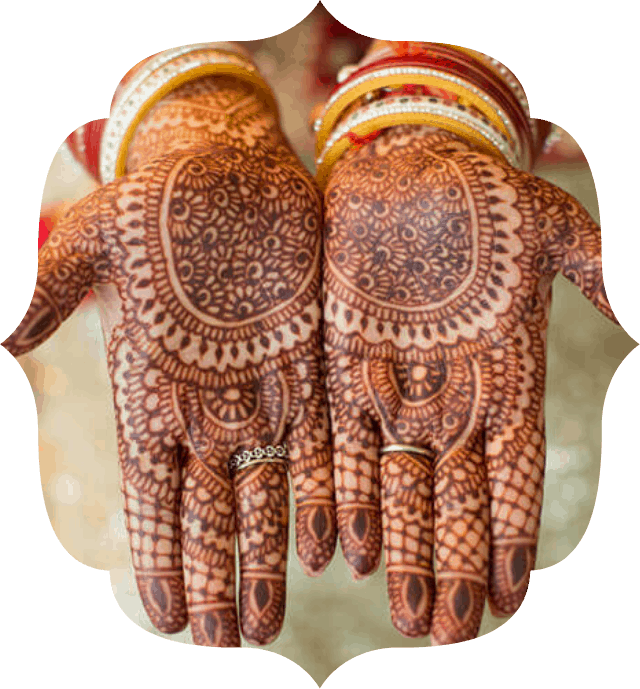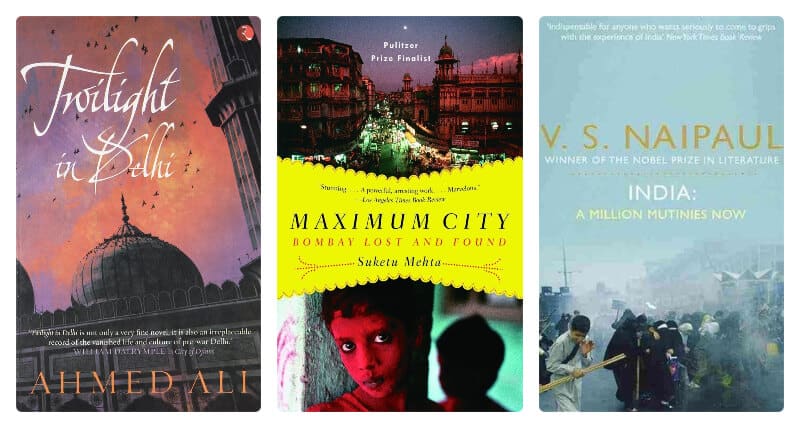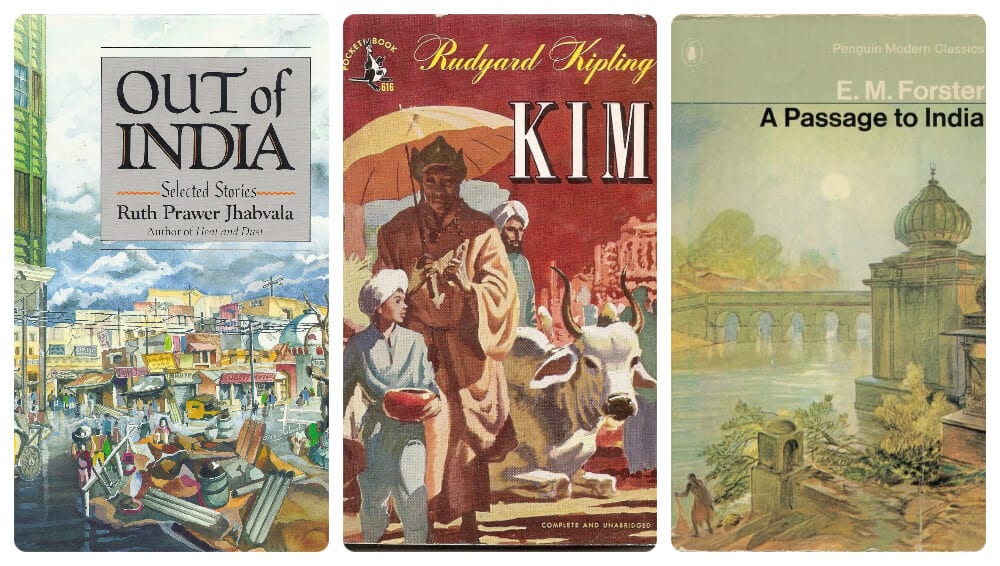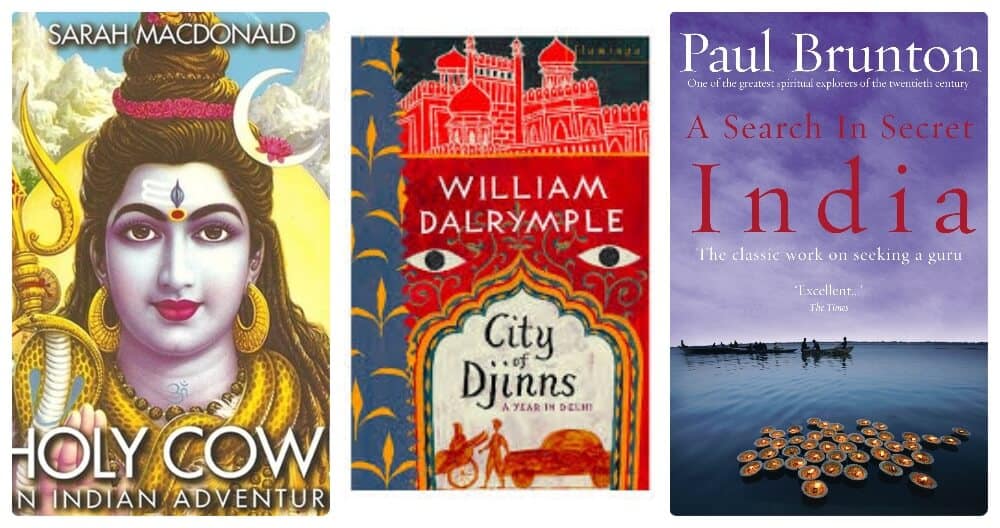THIS POST OFFERS 25 suggestions for best books about India. Some are by Indian authors, and some are by foreigners who have spent a lot of time in India. Both perspectives are useful and valid, and can help visitors struggling to understand this complex culture. However, some of the most popular books about India are not that great … if you ask me …
Shantaram and Eat, Pray, Love are two of the most popular books about India, but they are not among my favourites. In fact, I tried to read Shantaram when I was living in Delhi, but ended up literally throwing it across the room after I was about three-quarters of the way through. I thought it was poorly written and more about the fevered imagination of its writer than about India. In fact, it offers very little insight into India, if you ask me; and the longer I spend in India getting to know it, the more true this statement becomes.
Books about India by Indian authors
Twilight in Delhi by Ahmed Ali
This book, a “cult classic,” was apparently very hard to get for many years. Ahmed Ali was a Muslim writer and professor from Delhi who was out of the country when partition was announced and Pakistan was created. He was not allowed back into India and had, instead, to settle in Pakistan. It is a prose poem dedicated to the twilight days of “old” Delhi, when the Muslim area of the city flourished. It not only captures a bygone era, it also relates some moving personal stories.
Maximum City by Suketu Mehta
This is one of the best books I have read recently. It has an ambitious scope and many small wonderful moments, and seemed Dickensian to me in its attempt to capture the spirit of the times in a big, broiling, magnificent city. This is Bombay (Mumbai): gangsters and hero cops, foot-path poets and down-to-earth movie stars. You will learn a lot more about what Bombay is really about in this book than in Shantaram.
My Experiments with Truth by M.K. Gandhi
For my money, this ranks with Memories, Dreams and Reflections by Carl Jung as a truly honest and interesting autobiography. The title says it all, and says so much about a man who just seems to be made of different stuff than you or me. It’s truly a fascinating read, as you get insight into the human being behind the myth.
A Fine Balance by Rohinton Mistry
It is intimidating to even try and summarize or review this epic book. I grew up reading Charles Dickens, and the scope and magnitude of this book is reminiscent of his style. This sweeping tale follows the live of four characters and the terrible hardships they endure living through the 1970s emergency in India. It is not easy to read as it forces you to confront the stark realities of poverty, casteism, corruption, cruelty, greed, hunger, and sometimes just plain bad luck. It’s bleak, but at the same time shines a light on the resilience of the human spirit. I learned a lot about India society and culture, too … especially the most difficult aspects.
Midnight’s Children by Salman Rushdie
In some ways, Midnight’s Children is the fictional version of Freedom at Midnight (see below). India was granted independence from British colonial rule at the stroke of midnight on August 15, 1947. This book is about the children born in India at the exact moment of independence, and specifically two of them — who are switched in the hospital and grow up with the wrong families. It won the Booker Prize, and then the Booker of Bookers. It’s a big story, sprawling, bawdy, maddening, magical. Midnight’s Children was made into a movie by Deepa Mehta.

Come to India with us!
Are you dreaming of a trip to India? Come to India with India for Beginners custom tours, from Breathedreamgo and let us show you the India we love. With India for Beginners, we help you design a tour based on your interests, preferences, and budget. We pick you up at the airport and we are available by phone 24/7. We hold your hand in India!
What the Body Remembers by Shauna Singh
The partition of India in 1947 led to the greatest mass movement of people in history as millions of Muslims left India to move to newly created Pakistan; and millions of Hindus and Sikhs left the part of Punjab that suddenly fell on the Pakistani side of the border. The violence that was unleashed was massive and devastating. This book is a novel about a Sikh woman who is a young bride at the time of partition — living on the wrong side of the border. The personal narrative makes the history very real. I also recommend Train to Pakistan by Khushwant Singh and Cracking India by Bapsi Sidhwa for the same reasons — brings the truly terrible history of partition to life. Cracking India was made into a film called Earth by Deepa Mehta, part of a series that includes Fire and Water.
India: A Million Mutinies Now by V.S. Naipul
What can I say? It’s the classic. Personally, I admire this book more than I like it. Massive, sweeping, iconic, and keenly observed, you will feel as if you have walked from one end of the country to the other by the time you have finished. It’s a portrait of India 40 years after independence, told through the stories of the many people (almost all men) that he meets and interviews along the way. V.S. Naipul received the Nobel Prize in Literature in 2001.
The God of Small Things by Arundhati Roy
Had to start this book a second time before I really got into it. It creeps into you like rain forest dampness. Very evocative and very powerful. While the setting is Kerala, in tropical southern India, it could be anywhere rural and stifling. I thought of the American deep south more than once. Strikingly original writing — but not an easy read.
City Improbable edited by Khushwant Singh
Bombay/Mumbai and Calcutta/Kolkata seem to get all the press, but there are those of us who are quite taken with Delhi. It’s a fascinating, historical, multi-layered city that sometimes seems, well, improbable. This is an excellent collection of entertaining and informative essays, and there really isn’t anyone like Khushwant Singh. He’s one of the most popular writers in India, and for a reason. His novel Train to Pakistan, about the partition of India, is also one of the best books on the subject, and was made into a movie.
Baumgartner’s Bombay by Anita Desai
This is a deceptively hardcore piece of writing from a masterful writer and storyteller. It’s about the last, pathos-filled days of a “man without family or home,” a lonely, aging foreigner in Bombay who has no where else to go. The final scenes, after he meets an unwashed hippie in a local cafe, are searingly hard to read. This book is to Shantaram what Masterpiece Theatre is to an Adam Sandler film.
All Roads Lead to Ganga by Ruskin Bond
This is a lovely piece of writing, an elegiac about Ruskin’s home in the Himalayan foothills of Uttarakhand. It reads like a love letter to the countryside and especially the nature of Dehradun, Mussoorie, and the Char Dham pilgrimage routes to the source of the Ganga (Ganges) River which naturalist Ruskin has hiked many times. I read it for the first time on a long train ride to Dehradun and it was the perfect accompaniment. Since then, Ruskin has become one of my favourite writers, and I too have settled in the Lower Himalayas — in my case, my home is in Rishikesh.
The Man-Eating Leopard of Rudraprayag by Jim Corbett
Not as well known as The Man-Eaters of Kumaon, this book is nevertheless a good read. It made me feel like a boy scout at camp, reading by flashlight — it’s that kind of book. Corbett won’t win any awards for poetic writing, but he sure can tell a good story. The descriptions of the killings can be gruesome. I read it in bed with my tabby cat stretched out across my legs and there were a few times I found myself looking at her a little more intently than usual. All of Jim Corbett’s books are page turners, and were best sellers in their day, but that’s not the main reason to admire Corbett. He was one of the first conservationists in India — I went to his home in Nainital, Kumaon on a pilgrimage. Corbett Tiger Reserve is named after him.
Books about India by foreign authors
Kim by Rudyard Kipling
This is my favourite book of all time. If you’ve never read it, throw out everything you think you know about Kipling, who was the most famous writer of his time. It’s a masterpiece. I read it with my jaw on the floor. I have never read a book that is so in the moment.
The book follows the story of teenage Kim, son of an Irish immigrant and ‘friend of all the world’, who travels the roads of India with his guru, an elderly Tibetan lama on a spiritual quest for a river of enlightenment. It is unique and uncanny in its ability to absolutely immerse you into the scene and the story. You can feel the oppressive heat of the plains and the crisp air of the mountains. You can imagine Kim’s excitement about rejoining his friend on the road after a stint locked-up at school. You can feel the old man’s pain as his quest seems to elude him, and the love he engenders in Kim, his disciple.
You tramp along with Kim down the streets of Lahore, on the Grand Trunk Road, through Himalayan passes. Every sound, every smell, every gesture, every accent is evoked. The dust swirls around you, the smell of cooking food entices you, the fresh air of the mountains revives you. Kipling knew the road in India, and he knew how to capture it in words. And Kipling is not just a master of description — he is a master story-teller. Like India herself, this story is bold, complex, subtle and ambiguous. And you will be carried away by the transcendent ending.
A Search in Secret India by Paul Brunton
A cult classic, it’s about the author’s sincere, strange, and ultimately inspiring search for spiritual truth in India. This is a fascinating book that starts slowly and becomes very compelling. Brunton was way ahead of his time — this book was published in 1935 and it’s about his search for a spiritual master in India. He admits to being skeptical; admits to getting duped by fakes; and almost dies in a Bombay hotel room. But something pushes him forward and after about a year of searching, traveling and living in very (and I mean very) rough conditions, he meets Sri Ramana Maharishi. That is when the book becomes transcendent, and impossible to put down. The last part of the book, about Sri Ramana Maharishi, is just about the best writing I have ever read by a spiritual seeker. It’s truly riveting. This is the book that introduced Sri Ramana Maharishi to the west (and he remains one of the greatest Indian saints of the 20th century).
Empire of the Soul by Paul William Roberts
This is the book I hope Shantaram readers graduate to read. It is about two lengthy trips journalist Roberts took to India, separated by many years; and about how he reconciles some of the extraordinary experiences he had there. Roberts is known for hard-boiled books about war-torn countries like Iraq, so when he writes about his spiritual awakening, it rings true.
Roberts was just another youthful seeker backpacking around the subcontinent in the 1970s. The difference is a) India really got under his skin and he had some amazing spiritual experiences and b) he can write, and he has his own unique style.
Out of India by Ruth Prawer Jhabvala
You may know her name as the screenwriting partner behind many wonderful Merchant-Ivory films, including A Passage to India. She was a European who married an Indian architect and lived the rest of her life in Delhi. The introduction to these short stories — in which she presents herself as a foreigner living indolently in India — alone is worth the price of the book. It’s hands-down the best piece of writing I have ever read about what it is like to be a foreigner in India. Absolutely priceless. She nails the cultural divide, which I experience on a daily basis. She’s one of my favourite writers, anytime, anywhere.
India’s Unending Journey by Mark Tully
Tully was the BBC’s chief correspondent in India for many years.He’s a good writer and he knows India. India’s Unending Journey is by far the most personal of the many books he wrote on India. It’s about his own psychological and spiritual journey as he learns from India to be “certain about uncertainty.” And he says it’s the most valuable thing he has ever learned. I can relate. Compelling reading. Also like No Full Stops in India. Actually, anything by Mark Tully.
A Passage to India by E.M. Forster
One of my favourite books and movies about India by a foreigner. Written in 1924, A Passage to India tells the story of an impressionable young British woman who comes out to India to potentially marry the city magistrate of fictional Chandrapore. In India, she comes face to face with the stark realities of colonialism, the mysteries of eastern spirituality, the differences between eastern and western world views and, most importantly, her own inner darkness. It’s a very thought-provoking book with lots of great characters, and the epic film directed by David Lean does it justice.
City of Djinns by William Dalrymple
I was torn, not sure which Dalrymple book to put on this list. They are all good, especially Nine Lives. He is a solid as a rock in terms of research, reporting and writing. But this is his first book about India and it’s about Delhi (Dilli), my home-away-from home in India — and in fact, his real home. He lives there now. He has an Indian soul. The book is both a personal narrative about living in India for a year and about the history of Delhi. (And if there’s one thing Delhi has, aside from crowds of people and traffic, it’s history.) It’s by turns informative and funny. I keep intending to find out if International Backside taxi stand really exists.
P.S. Dalrymple is the found of the Jaipur Literature Festival.
P.P.S. I finally got a chance to ask Dalrymple if International Backside taxi stand was real and yes, he confirmed that it was.
Freedom at Midnight by Larry Collins and Dominique Lapierre
On the stroke of midnight, August 15, 1947, India became free. This is the classic book about the biggest event in modern Indian history: the freedom struggle, partition and birth of a nation. You cannot begin to know or understand modern India if you don’t have a grip on its struggle for independence and the larger-than-life players who made it happen, especially Gandhi, Nehru, Mountbatten and Jinnah. The film Gandhi, directed by Richard Attenborough, gives you a lot of the same information, but this book fills in all the holes.




